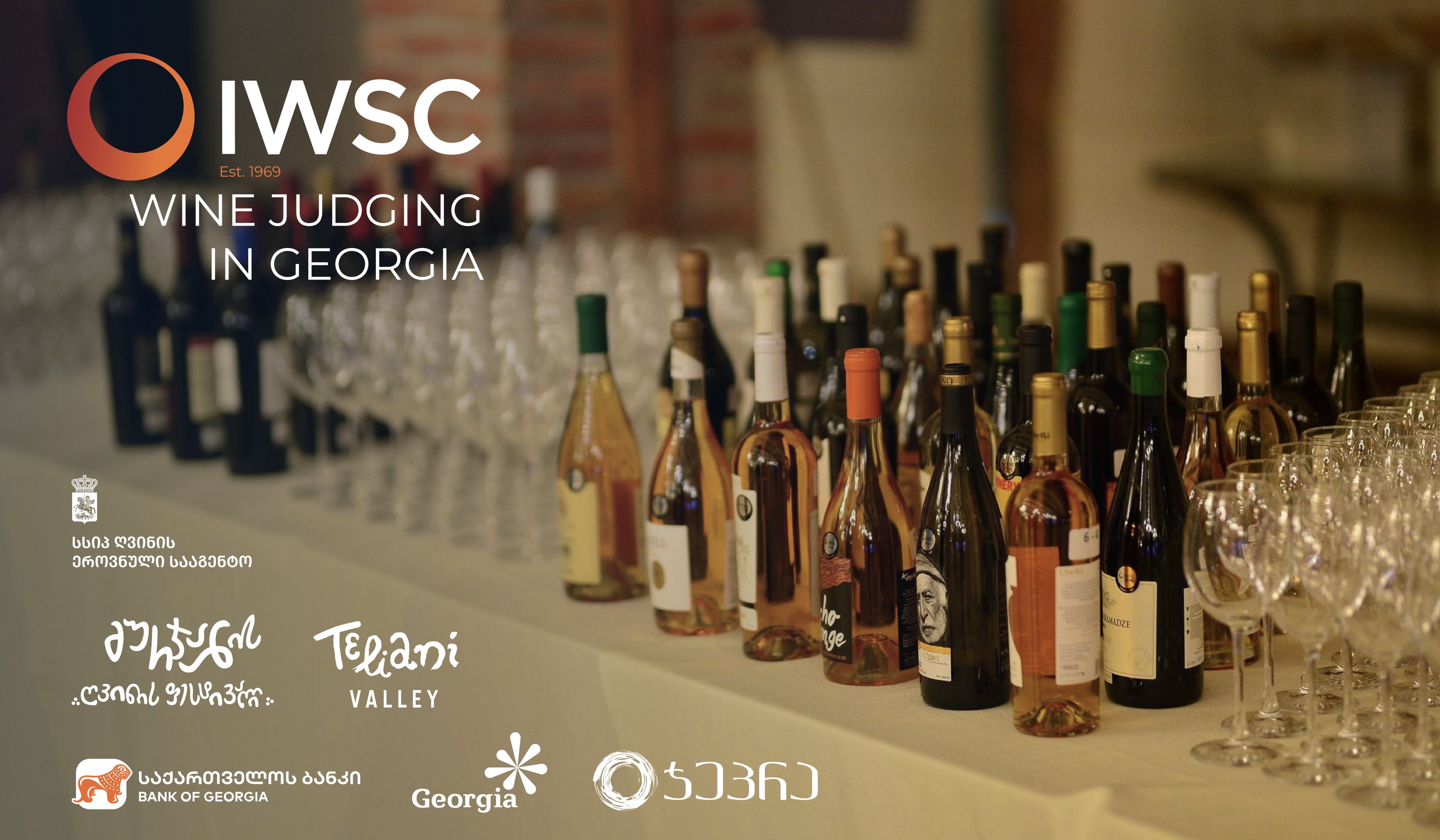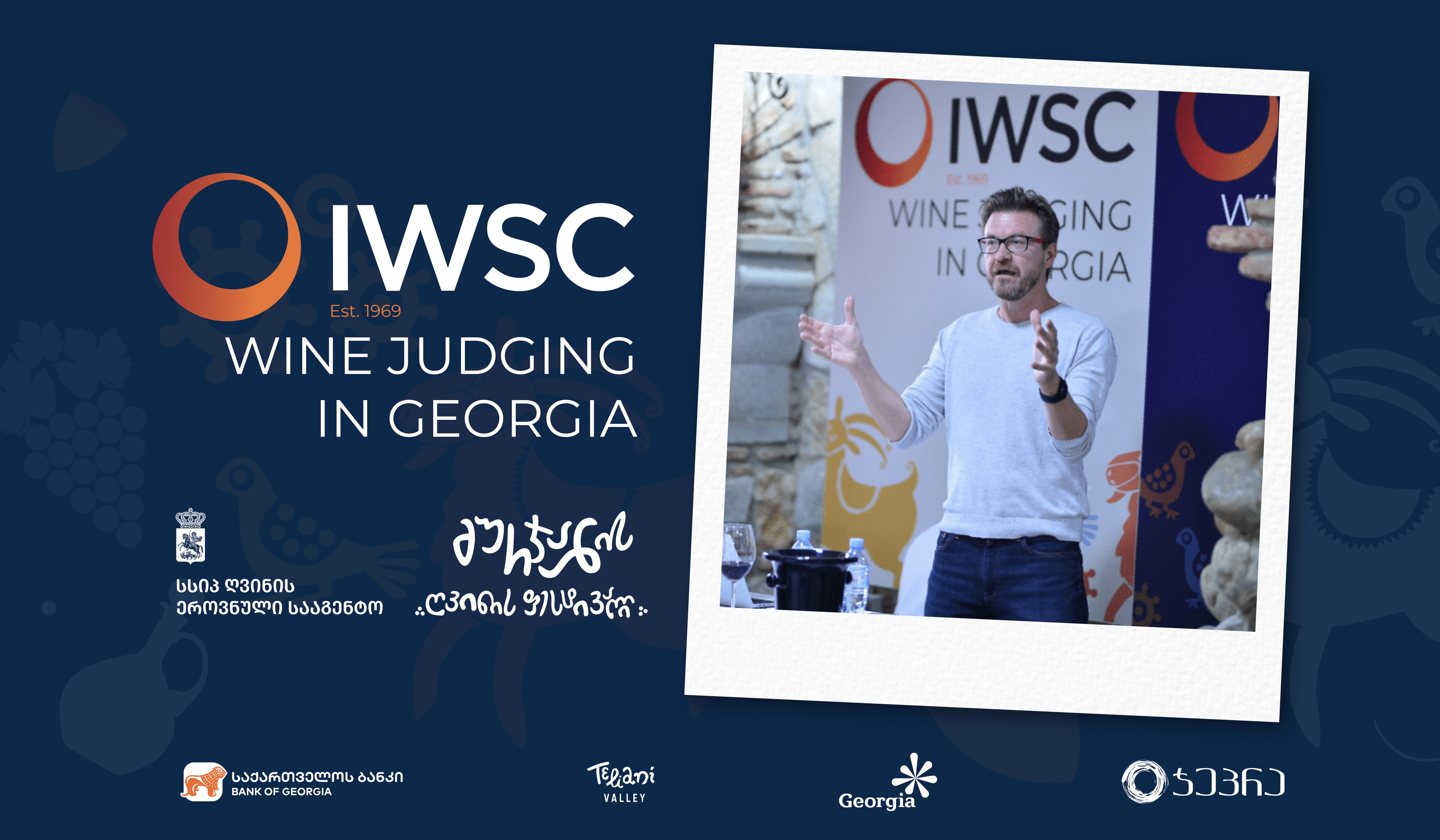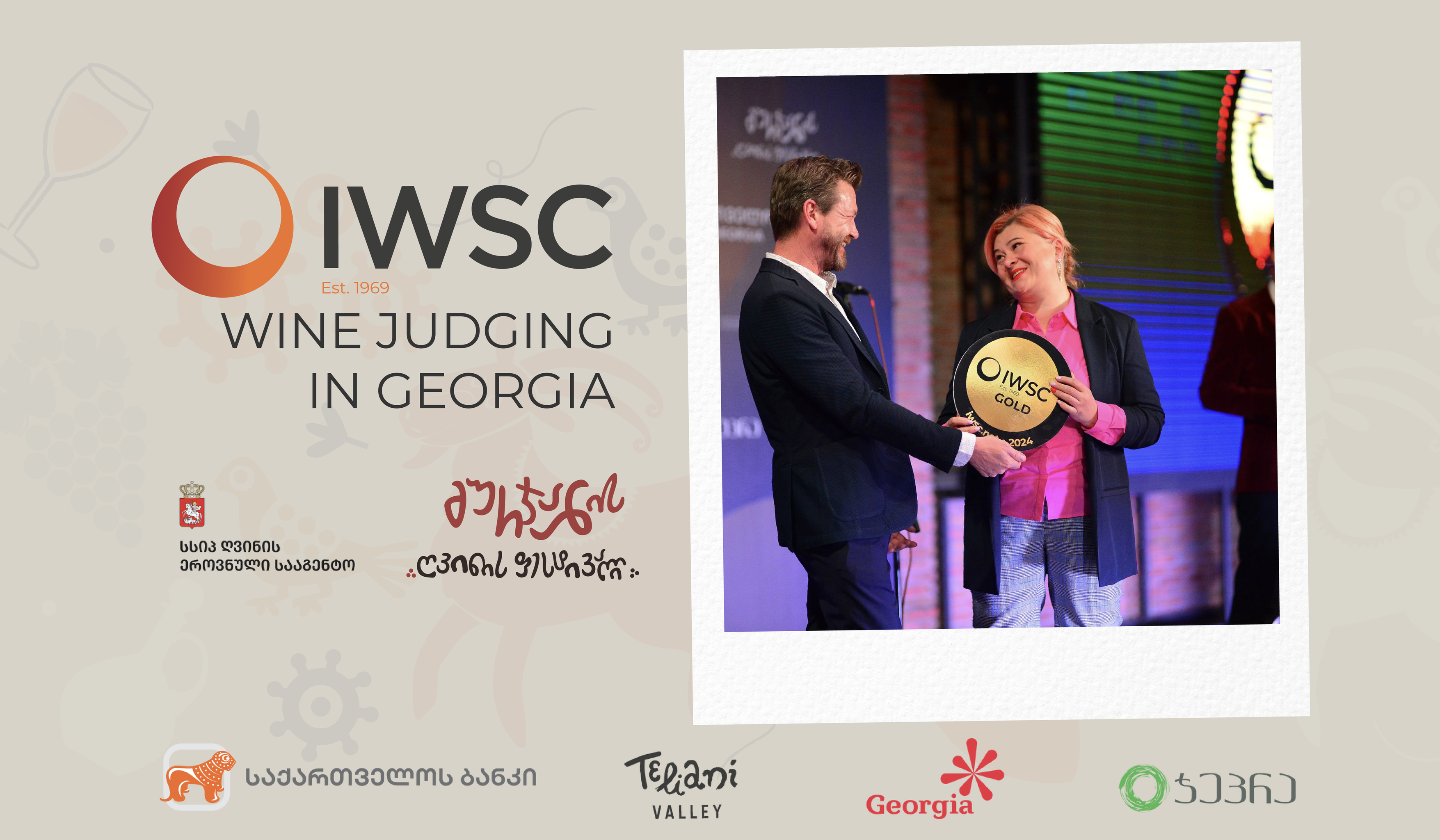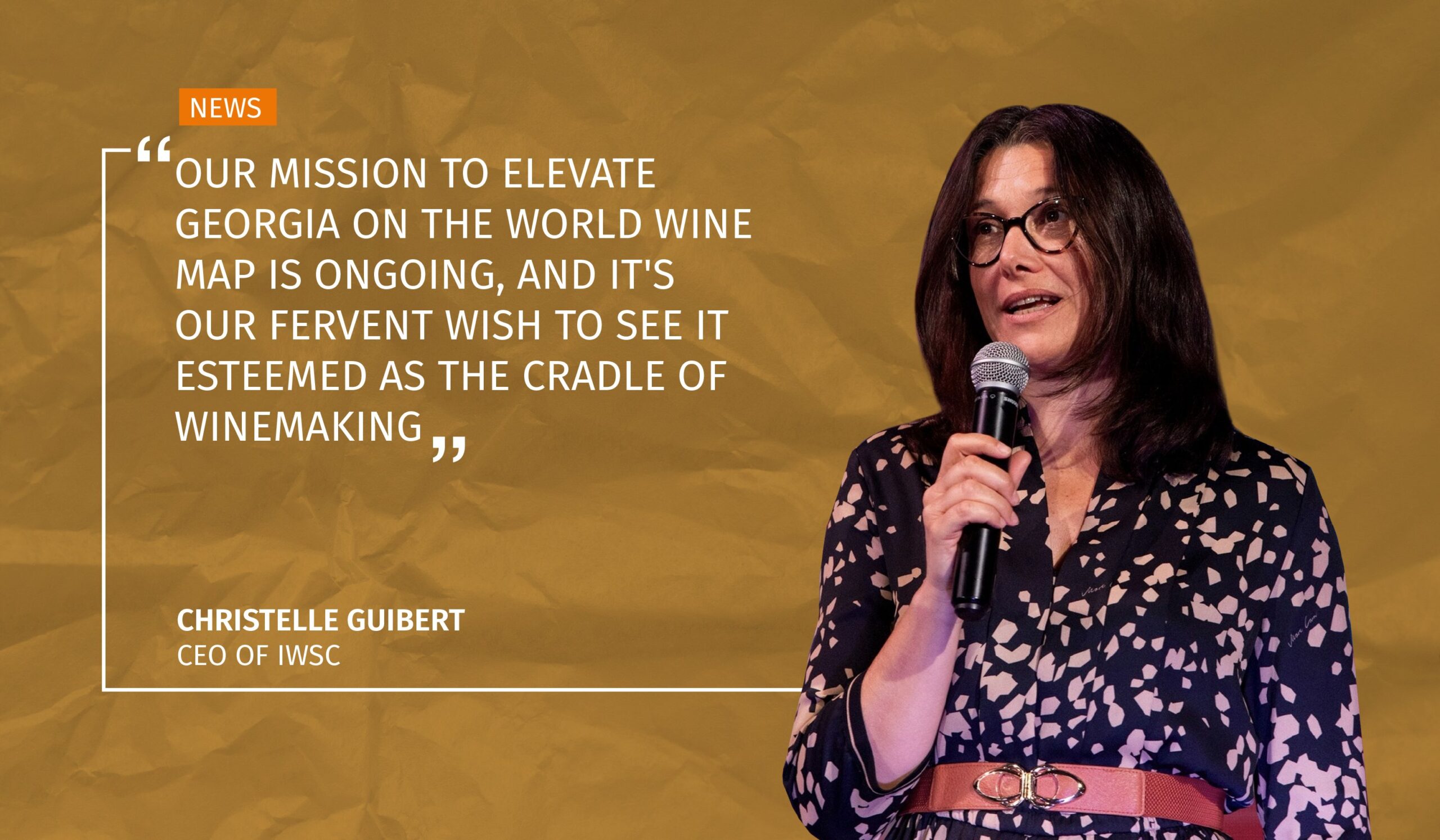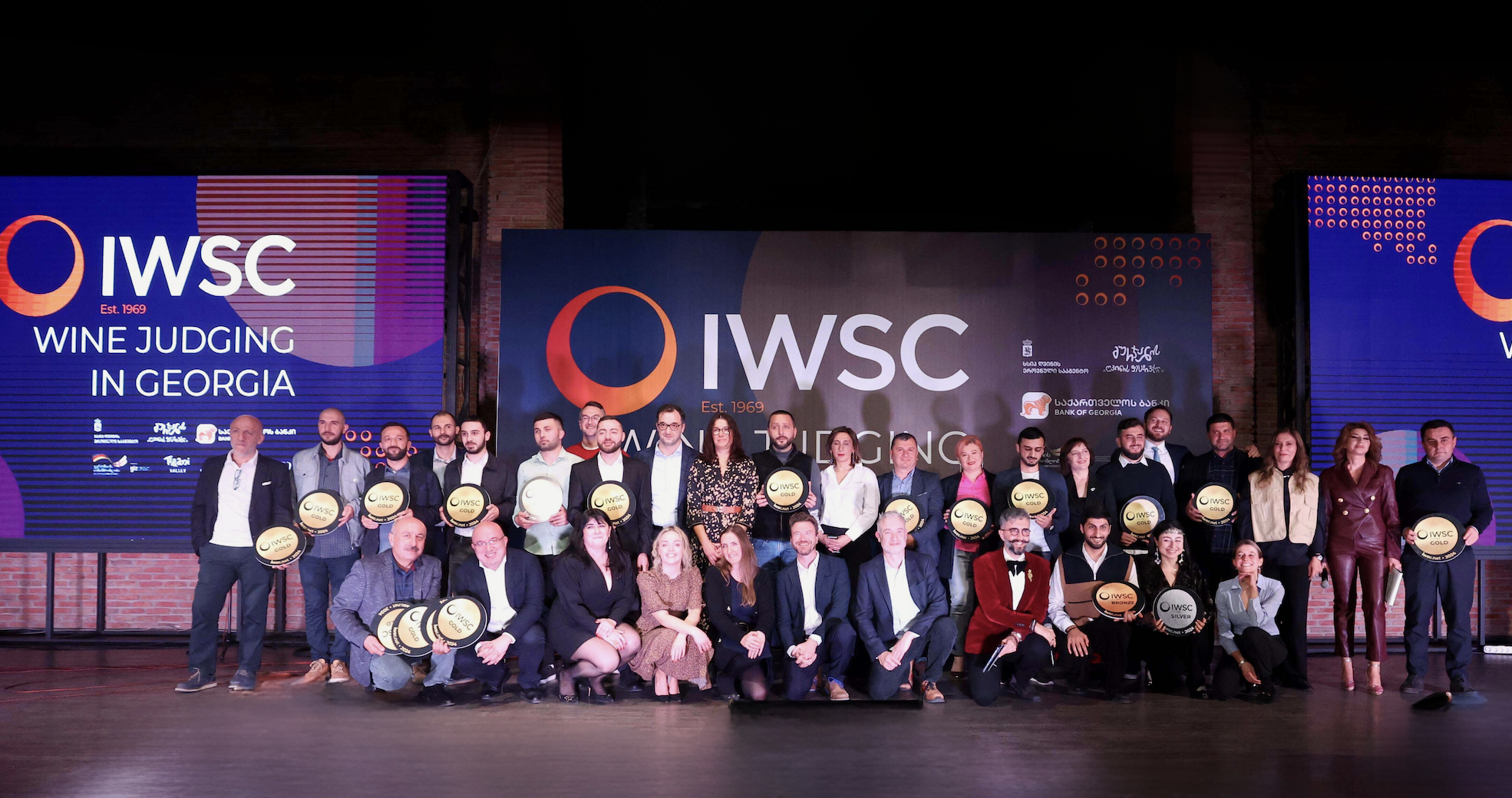Known as ‘the cradle of winemaking’, Georgia has a history of over 8,000 vintages. With over 500 indigenous grapes and a unique winemaking tradition of qvevri, this stunning mountainous country has a few cards up its sleeve to impress even the most discerning palates. This has been once again proven by the IWSC’s 2024 Wine Judging in Georgia which had our international experts sing praise to Georgian grapes and wine styles. At the end of the tasting, organised in partnership with The Gurjaani Wine Festival and National Wine Agency of Georgia, we sat down with our judges, David Kermode, Will Hill, Cat Lomax, as well as Head Judge Alistair Cooper MW, to hear their opinions of Georgian wines and their future on the global stage.
“I am very impressed. This is my second trip to Georgia – the first one was 4-5 years ago. And I have seen a qualitative leap forward in those four to five years. We found some absolutely world-class wines during this judging,” shared Head Judge Alistair Cooper MW.
The medal results are a testament to the consistent quality of Georgian wines – this year, out of nearly 450 wines that entered the competition, more than 60% were awarded with medals, including 18 golds. These results are similar to last year’s Georgian Wine Judging, when around 57% of wines received medals, including 16 golds.
It is not just the quality, but also the diversity of Georgian wines that impressed our judges.
“There are so many different styles on the show! And not just styles from one variety to another. But regionally, we are seeing a lot more identifiable dependency between where grapes are coming from, and the kind of winemaking decisions that are very, very clear in the glass,” said Will Hill.
Cat Lomax praised the distinctive character of the Georgian wines tasted: “Some of the top-flight wines that we awarded golds were truly standout and incrediblymemorable in terms of the aromas that you get in the glass. They just have a real hallmark, an individuality sort of stamped onto them, which is just distinctive for this one country in the world. So yes, they are qualitatively, very much up there with the best wines.”
Some of the most distinctive Georgian wines are certainly skin-contact wines made in qvevri, noted the judges who were impressed by the way qvevri allows the grape character to shine through, while also adding a rich texture to the wines.
“Something we found was quite consistent in qvevri wines was this umami kind of flavour. Sometimes it presented itself as a kind of soya bean, sometimes a little bit more like parmesan cheese, but in a very desirable subtle way. And the texture that can come from using a qvevri is something you don’t really get from other vessels. This wonderful integration of spice and tannin, and this drying kind of finish!,” shared Will Hill.
The judges emphasised that when it comes to qvevri-made orange wines, careful extraction is crucial for maintaining the balance and avoiding the overly dry sensation on the palate. When done well, these wines are outstanding and their ageing potential is truly remarkable, said the judges.
“Ithink, very often they are wines that need to be drunk with food – due to the grip they have. But they offer such fantastic opportunities for pairing with food! So they’re kind of a sommelier dream, I think because they can go with so many things,” added Alistair Cooper MW.
However, a sommelier’s dream could be a retailer’s nightmare pointed the judges, as selling these wines off a supermarket shelf might prove challenging.
Cat Lomax shared some tips for the producers: “The brilliant thing about selling wines in a restaurant is a hand-sell moment – the sommelier can give you the story, explain exactly why this wine will go perfectly with this particular dish. That’s very different in a supermarket environment where you have nobody guiding you – all you have is a small ticket and a label. So the more guidance you can give consumers to help them on that journey, the better it will be in terms of results, both in terms of sales, but also loyalty, because you’ll have a customer who understands your wine and knows when to drink it”.
Placing more emphasis on the labels and including tips and hits for consumers, such as serving and food pairing suggestions, was something our judges recommended to Georgian producers.
Speaking of the standout grape varieties, our experts highlighted Saperavi, often named the ‘king of Georgian grapes’ – a well-deserved title, according to the judges who described these big bold red wines as consumer-friendly and compared them to Malbec.
Alistair Cooper MW shared: “I think it’s a great variety that will appeal to many people. And that I think, is one of its star qualities, in a way linking it to something like Malbec – it’s just as ‘user-friendly’. It’s accessible for the less engaged consumers yet right the way up to very engaged consumers and professionals. I think it has a lot to offer. And it can age really well.”
The judges admired the rich exuberant character of Saperavi wines, emphasizing that this grape also requires careful extraction and skillful tannin management.
“Stylistically, I think the most successful Saperavi wines that we have tasted have had really intelligent management of tannin. Obviously, as a big, rich grape variety, it’s quite easy to verge into very extracted wines and to get very drying tannins. So, as I said, the more successful wines are where that tannin has been reined in. It’s ripe, it’s adding a bit of grip, but it’s not dominant. And there’s lovely fresh acidity on the finish so that you get a lovely kind of juiciness,” shared Cat Lomax.
As for the other grapes that performed well, the judges highlighted a few white varieties – specifically, Kisi, Rkatsiteli, Khikhvi and Mtsvane Kakhuri.
“I think Kisi does very well in qvevri styles, but in non-qvevri as well. It’s floral and aromatic, but not overly so, not like, let’s say Torrontes or Gewurztraminer can be. I think Kisi has got this lovely, more restrained morality than those grape varieties, perhaps with some minerality on the palate, looking more towards Gruner Veltliner or something like that. so I think that it’s a great variety that is very much in line with what’s trendy at the moment,” shared Alistair Cooper MW.
Judge Will Hill added: “I found some exceptional examples of Rkatsiteli even with a few years of development in the bottle which was very exciting. But in terms of some of the qvevri wines we tried, Khikhvi in particular, was wonderfully spicy, with great texture – it is one of my favourites I found in qvevri. We were pleasantly surprised by another grape– Mtsvane Kakhuri – the elegance that we found in this grape really produced some of the best qvevri wines we came across.”
Summarising the tips and advice for Georgian wine producers who are aiming to grow their export, our judges, once again, emphasised that the quality is there – now it is time to focus on branding and storytelling. Start with the label, said the judges. Make sure the front label is easy to read and understand for consumers across the world, and the back label contains some clear and not overly complicated descriptors – such as, what the wine tastes like, how to enjoy it, what to pair it with. As for the winemaking practices – careful extraction is key.
Cat Lomax explained: “Across both reds and qvevri wines, one of the key messages I would give would be about managing tannins. It’s very easy, as we’ve already mentioned, with Saperavi to end up with big extracted wines with quite grippy, chewy tannins. The same can be said of qvevri wines. The longer skin contact can result in a wine that is quite drying. So it’s all about thinking about that last sensation in the mouth. Is it juicy and fresh? Or is it drying? And if it birding towards drying, you’ve probably extracted a bit too much.”
Alistair Cooper added, that focusing on youthful, fruit-forward, easy-to-drink Saperavi at a slightly lower price point will help to win over new consumers and push the category forward.
Another tip the judges shared is working closely with independent retailers who can become true ambassadors of Georgian wines. “Independent specialists have a loyal following of customers, and they’re growing well. So many people that I know that are not in the wine industry, that are semi-engaged or engaged consumers, trust these gatekeepers. So I think we need to make sure that those gatekeepers and those independents are engaged, because they have a huge role to play in furthering the accessibility of Georgian wines to consumers,” said Alistair Cooper.
Georgia is a very special place for a wine consumer to explore, with authentic wine traditions and unique grape varieties, said the judges. At the same time, the country successfully combines its heritage with modern winemaking techniques, producing wines that are easy to understand and enjoy anywhere in the world. It is exciting to see the quality of Georgian wines grow, and our judges are looking forward to diving deep into the country’s authentic wine styles next year.
